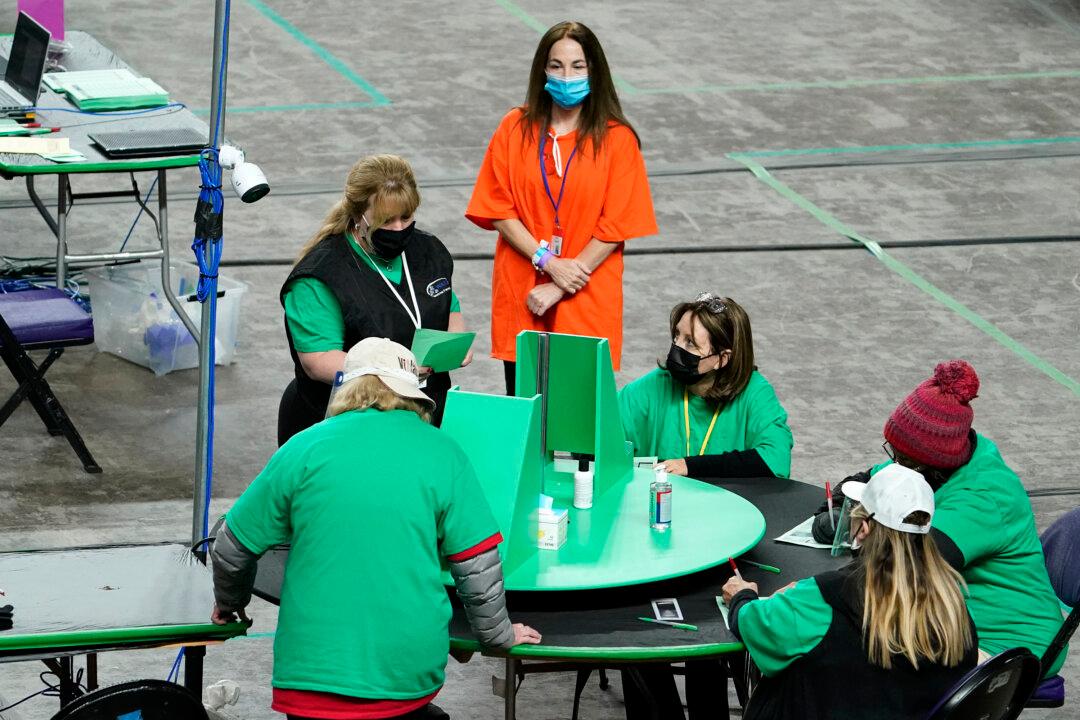Arizona’s top elections officer Katie Hobbs on Wednesday alleged multiple points of concern regarding the forensic audit of the 2020 presidential election currently underway in Maricopa County.
In a letter (pdf) to former Secretary of State Ken Bennett, a Republican who is the state Senate’s liaison for the audit, Hobbs outlined 13 points of concern over how the audit is being run. This included seven points of concern over counting procedures that the state Senate and audit contractor Cyber Ninjas disclosed, as well as six points of concern over what her observers saw at the audit site.




